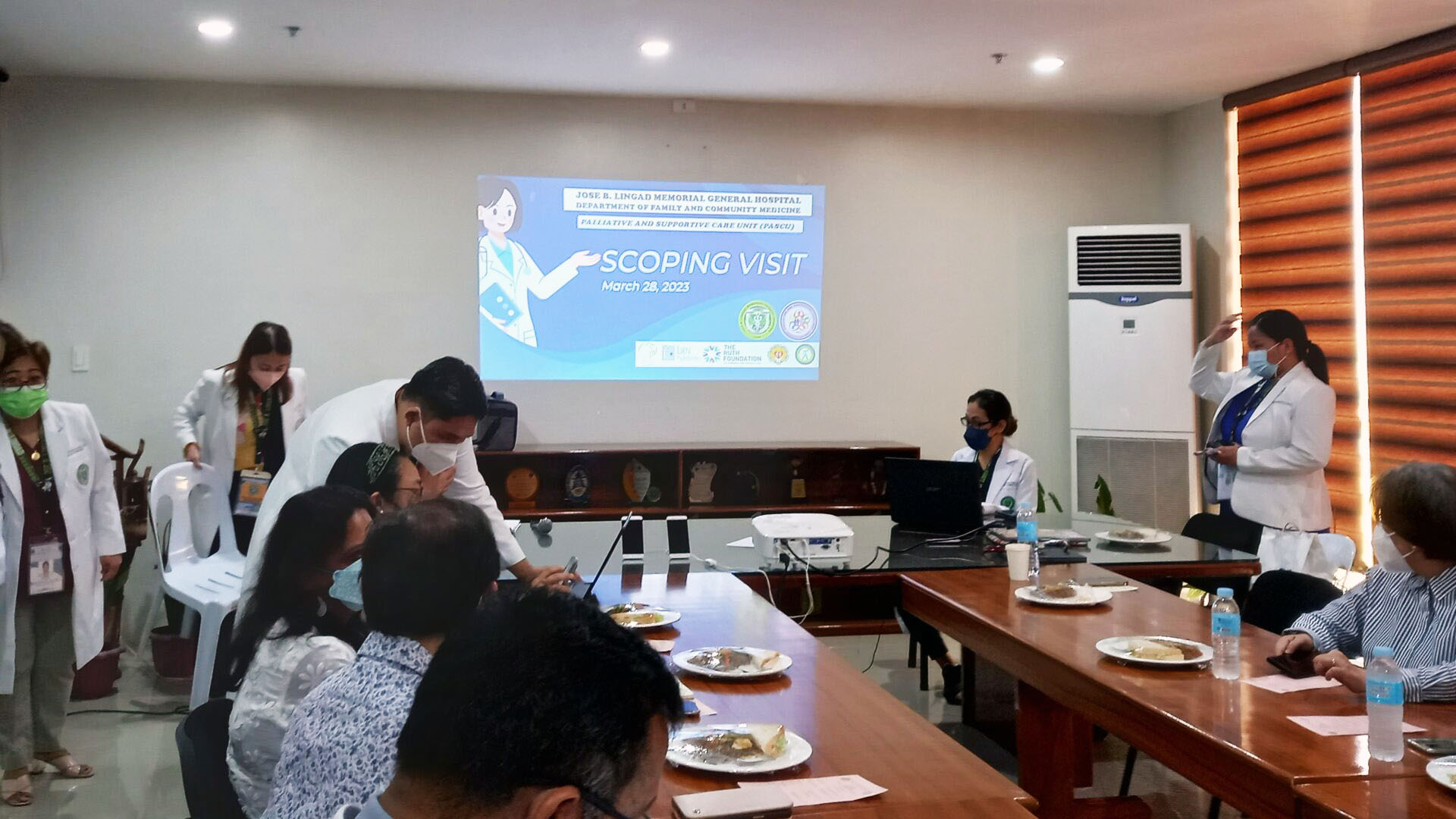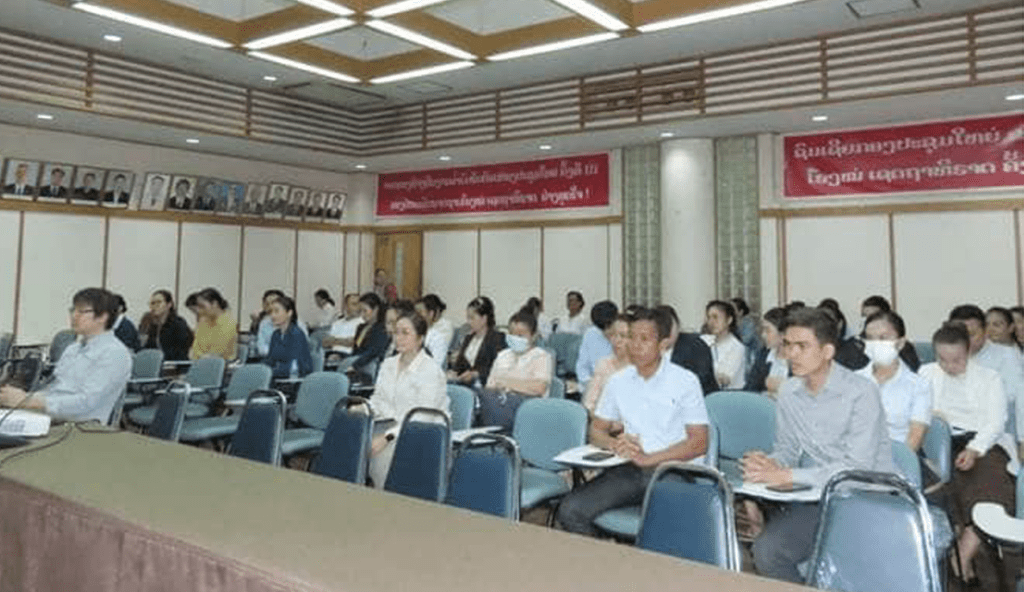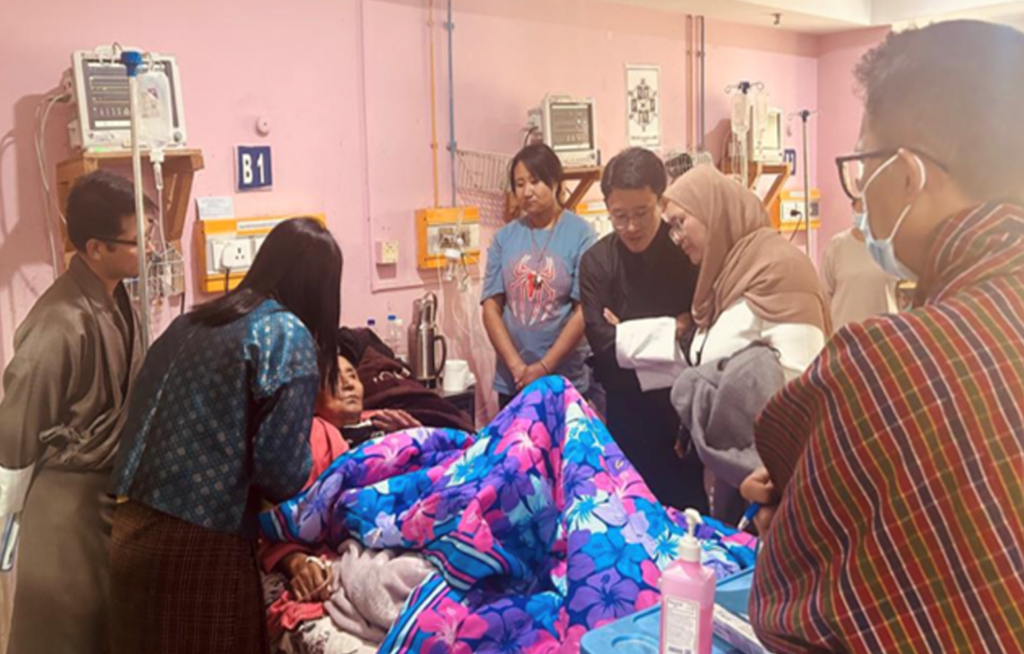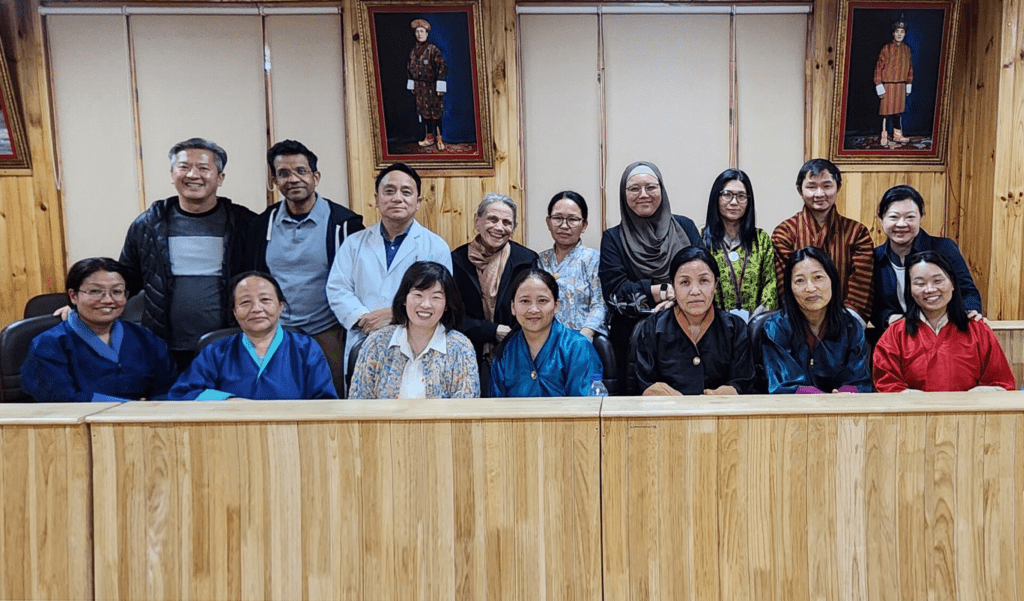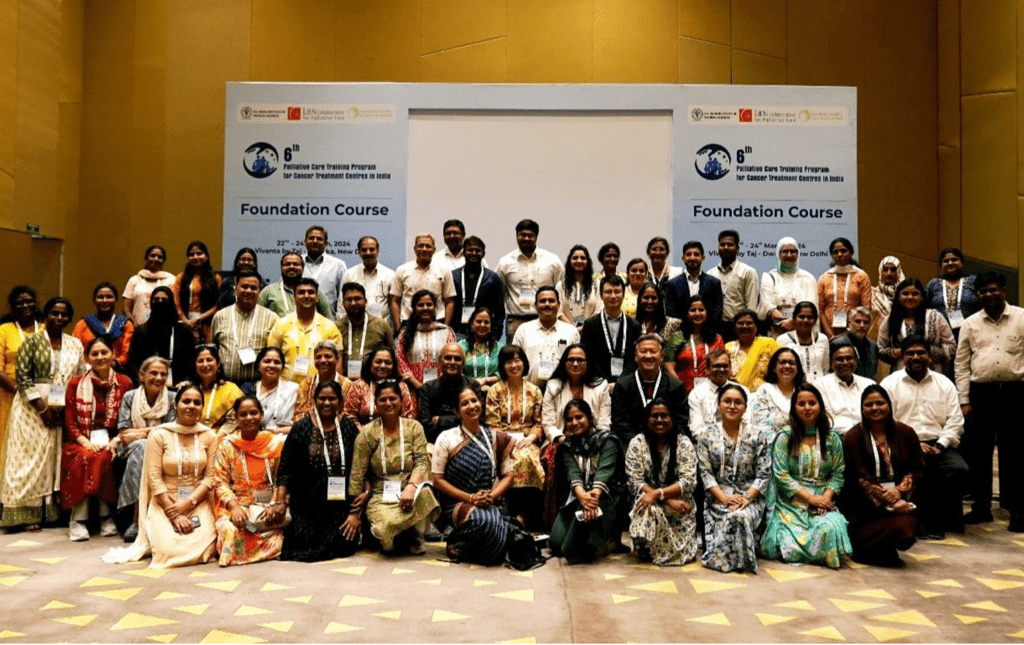The familiar Filipino greeting from the archipelago of Philippines welcomes many visitors to its sun-drenched beaches and bustling cities. Greetings like this and warm gestures of hospitality abound in my first outreach engagement in Philippines under the Lien Collaborative for Palliative Care Programme.
Though, I have volunteered in various activities in the region, for example as a medical doctor on a mountain climbing expedition with teens and young people with diabetes in Touch Diabetes and in village refurbishment efforts organized by the church, this is the first time I am volunteering in my capacity as a palliative care physician.
The Lien Collaborative for Palliative Care is an initiative started since 2012 and co-developed by the Asia Pacific Hospice Palliative Care Network (APHN) and the Lien Foundation. Its aims are to help build palliative care capacity in the Asia Pacific region and to integrate the palliative care projects with mainstream government health system. The modus operandi is to seek out local champions and partners from the region, scope the needs of the country, engage the health authorities and ministry early while aiming to build and activate the local palliative care fraternity to train their colleagues and to champion palliative care within their region.
These efforts may range from seemingly simple but daunting steps like ensuring availability of opioids, to lobbying health officials to recognize and to support palliative care programmes. The Asia Pacific region consists of at least 40 autonomous regions and is a veritable patchwork of diverse cultures, ethnicities, political systems and languages. Palliative care may be very developed in some regions or non-existent in others. This translates to glaring inequities and a tremendous amount of suffering in some regions. At the same time, rich opportunities to make a difference as well as to create solidarity across the growing network of palliative care practitioners in the Asia Pacific region abound.
To date, the Collaborative has tilled the ground and planted seeds in Myanmar, Bangladesh, Sri Lanka, India, Bhutan, China, Timor Leste, Laos, Sarawak and Nepal. Every country presented unique challenges like civil war, lack of availability of opioids and strained healthcare systems as well as opportunities including a growing recognition of the importance of palliative care, the resilience of the people and champions who are shining lights working against seemingly insurmountable odds where they are.
As I learnt more about the work of the Lien Collaborative for Palliative Care from Mr Giam, the Executive Director of APHN, it was with anticipation and some excitement that I went on my first scoping trip to the Philippines.
The Lien Collaborative for Palliative Care worked with Dr Rumalie Corvera, CEO of the Ruth Foundation for Palliative and Hospice Care, also an Ex-APHN Council member, who submitted a proposal to invite the Collaborative to assist in the training and development of palliative care in Philippines. As an advisory to the Department of Health of the Philippines, Dr Corvera laid out the proposal to work in parallel with the National Program for Palliative and Hospice Care by training more trainers, particularly for the Regional Hospitals under the Department of Health.
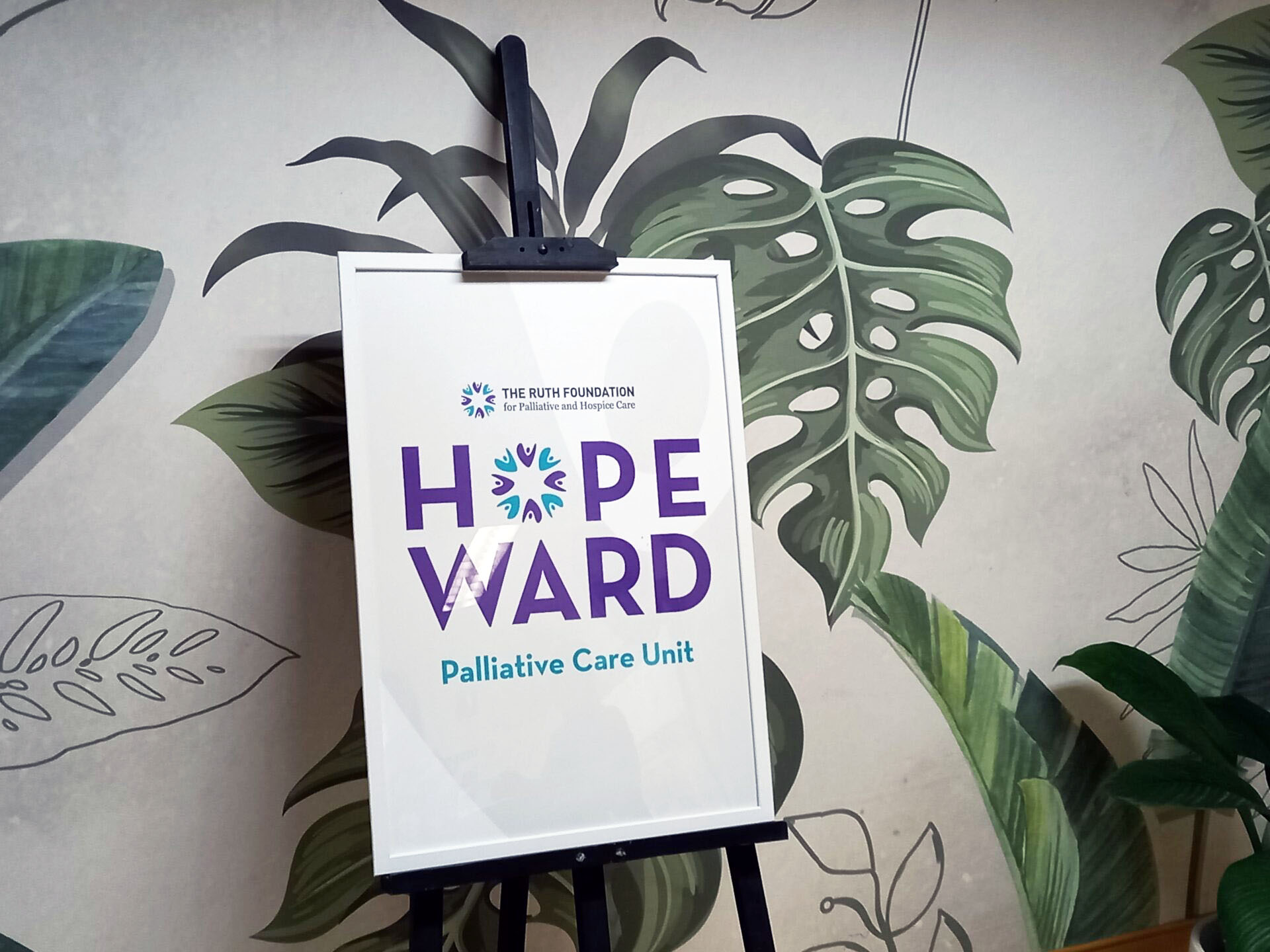
Our discussions with Vice-Minister of Health Dr Flavio Brandao have been instrumental in shaping initiaAt a stakeholders’ fellowship dinner on our first night, we had our first taste of the effusive and warm hospitality of our hosts in the Philippines. Local delicacies were served amidst the soaring voice of a very talented soprano. It was a vibrant evening welcoming our team and also honouring the team from the region and St Jude Children’s Research Hospital which successfully concluded the EPEC Paediatrics Symposium on paediatric palliative care. We were given an overview of the development of palliative care in the Philippines by key leads from representative organisations fronting the work.
The Philippines health system, like in many countries, consists of both public and private sectors. Inequity to access exists within this system. Overcrowding is a common issue at public hospitals while private hospitals serve those who can afford to pay. Within the public healthcare system, while the Department of Health (DOH) governs healthcare at the national level, the DOH depends on Local Government Units (LGUs) to roll out policies and standards.
In recent 5 to 10 years, there has been much development of palliative care in the Philippines. In 2015, Philippines ranked 78 out of 80, based on the Quality of Death Index by the Economist Intelligent Unit Report. In 2021, Philippines leaped to 38 in position in the Quality of Death and Dying Index.
The improvements can be attributed both to support from the Philippines Government and the tireless grassroots efforts of bodies such as the National Council for Hospice and Palliative Care in the Philippines (Hospice Philippines), the Philippine Society of Hospice and Palliative Medicine (PSHPM) and the Philippines Cancer Society in improving the care of those with life-limiting illnesses. In 2015, the National Policy on Palliative and Hospice Care in the Philippines was developed. In 2019, the Philippine government passed the National Integrated Cancer Control Act (NICCA) and the Universal Health Care (UHC) Law. These laws ensured the recognition of the rights of all Filipinos to palliative and hospice care.
The National Palliative and Hospice Training program framework, administered by the PSHPM, developed under the discipline of Family Medicine in the Philippines. Though interest in palliative medicine is growing, most parts of the vast archipelago have no palliative and hospice care programmes and there are currently less than 60 Palliative Medicine specialists throughout the country, serving a population of more than 115 million people.


Over the course of the next 5 days, the team was brought on a whirlwind tour of key facilities within the Philippines where palliative care has taken root and where trainers and trainees are working. These include the Southern Philippines Medical Centre (SPMC) in Davao, the JBL Regional Hospital in Pampangga, the Ospital Ng Makati, Philippine General Hospital, Ospital Ng Muntinlupa and the Asian Hospital. We crisscrossed the country in internal flights as well as in road vehicles. It was a rare opportunity for me to see the Philippines with a different lens as we savoured the amazing food and experienced the road congestion of Manila.
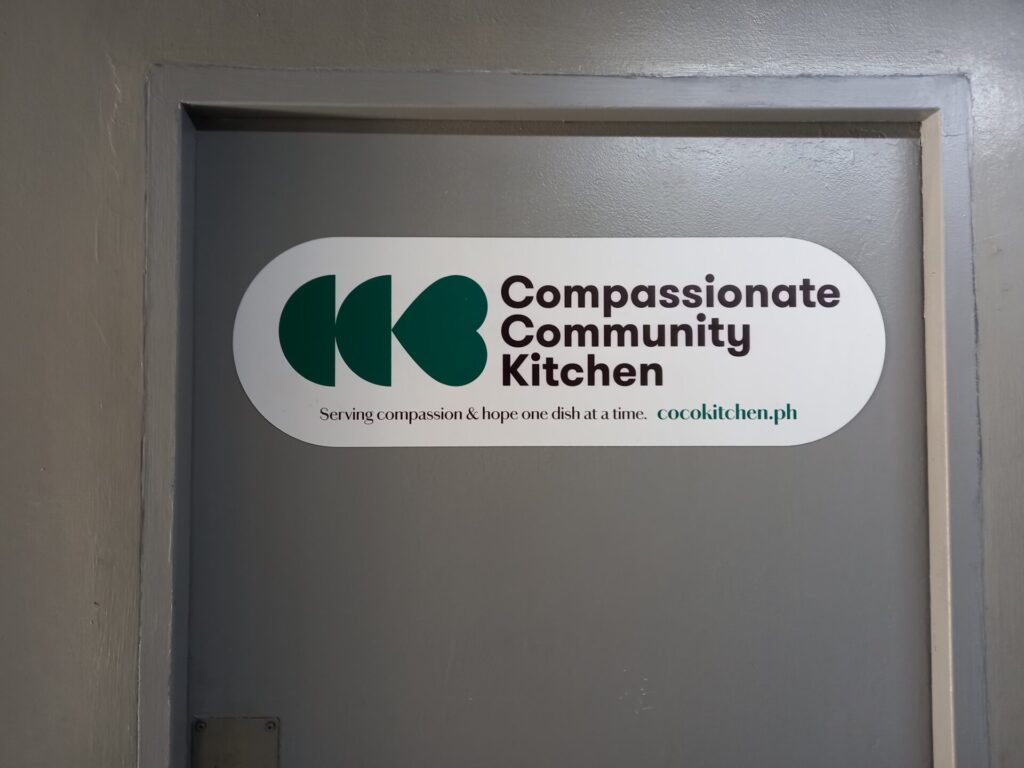

An interesting stop was at a compassionate community kitchen, set up by the Ruth Foundation (TRF), where we savoured uniquely Singaporean food such as chicken rice cooked by our hosts. We learnt that the compassionate community kitchen was inspired by Project Dignity and the Dignity Kitchen in Singapore which aspires to build a more inclusive society by providing gainful employment to the disabled. The kitchen set up by TRF likewise aims to build a more compassionate society by distributing free meals to palliative care patients cared for by the Foundation and by shelters for cancer-afflicted children from faraway provinces and for abandoned and homeless elders in Metro Manila.
When we reached Davao, we learnt that it was the former President, Duterte’s home city. We also witnessed an ironman competition across the streets outside our hotel in Davao City as international competitors of different ages, from young men to grandmothers ran in the sweltering heat, cheered on by an enthusiastic crowd.
Throughout our trip and in every visit, the warmth and generosity of our hosts was evident as they rolled out their very best to make us feel welcome. We were brought to meet their hospital heads, given formal briefings, shown around their wards, engaged their multi-disciplinary palliative care teams in meetings and treated to the best mangoes from their local farms.
Like the warmth of their hospitality, the resilience of the people of the Philippines is evident. Despite an overcrowded system, suboptimal infrastructure in some places, the challenging geographical terrain, a lack of healthcare professionals and variable access to drugs, the healthcare teams have innovated against the odds and embraced the centrality of palliative care as a basic right of all Filipinos. The palliative care teams work tirelessly to tend to the seriously ill within the hospitals and in the communities.
In the hospital wards, palliative medicine specialists contend with late referrals to palliative care, not dissimilar from other countries. Patients may be discharged to very far and isolated places in the community such as in mountainous villages. These areas may not be accessible to home palliative care teams. The hospital team tries their best to follow up by providing their personal numbers to the families of the patients.
The palliative care fraternity in the Philippines recognise the need to upskill other specialist colleagues and family doctors in the community in primary palliative care. In 2021, a technical team partnered the DOH in publishing the Manual of Operations, Procedures and Standards for National Palliative and Hospice Care Program. It was an ambitious time with other accompanying training manuals detailing standards, objectives and content for palliative care training for primary care providers.
One single palliative care specialist serving a very large area in Muntinlupa City recounted the challenges her team faces in tending to the sick and dying within their homes, with limited manpower, drugs and equipment. I asked her how she copes with the odds, she replied:
“Doing palliative care makes me feel truly alive”.
This spirit and enthusiasm was reflected in the faces of those teams we encountered.
At the Philippines General Hospital, we witnessed its rich history as the training ground of many physicians in the Philippines. As we walked through its hallowed halls, I noticed a metal ramp at the side of the staircase.
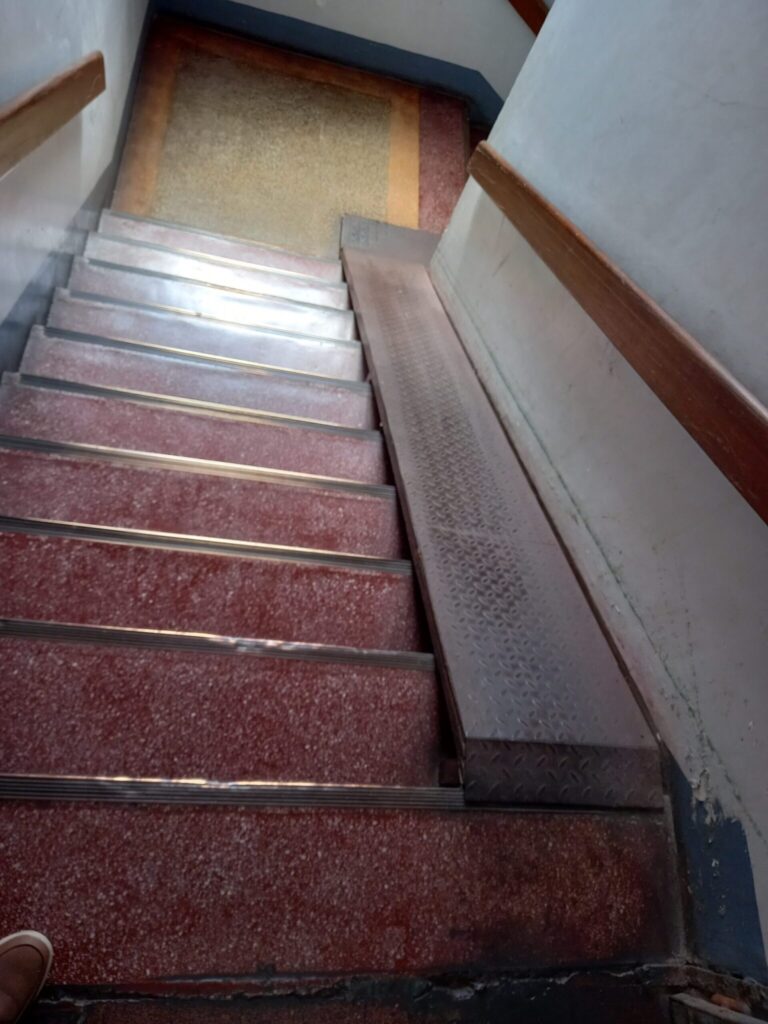

“What is it for? “I asked. My host replied that it is for rolling bed up and down stairwells in case the lift breaks down. To me, this practice was symbolic of the “can do” spirit and resilience of the healthcare team in Philippines in embracing palliative care.
While the need for universal access to palliative care is gaining recognition in the Philippines, there exists a need to aid the roll-out of the national palliative care program throughout the country, to build more palliative and hospice programmes and to ensure equitable access to drugs and services.
It is hoped that through the continuing efforts of the Lien Collaborative for Palliative Care, this may be achieved through networking, training master trainers and mentoring program leaders, in regional hospitals and in cancer centres throughout the country. The challenges are many and the need is great. We hope that more palliative care specialists from the region will rise up to serve in this endeavour. Just like the runners in the ironman competition who are running towards the finishing line and cheered on by onlookers, the vision of universal, quality and humanistic care for the seriously ill in the Philippines, can be achieved, one step at a time.
“Pasulong!” (Onward in Filipino)
Written by: Dr Raymond Ng (Senior Consultant, Woodlands Health Campus)


